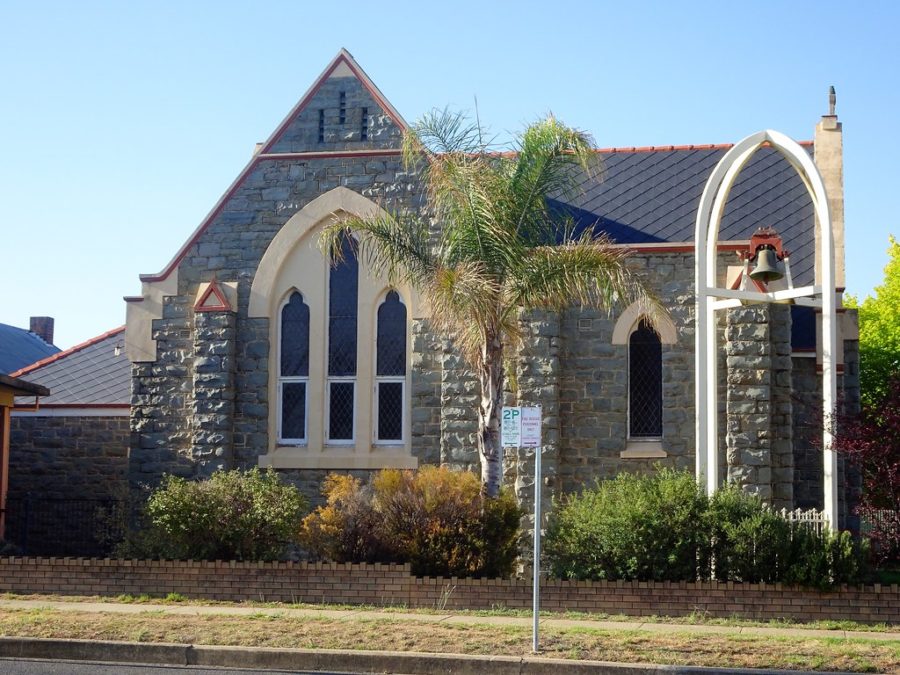Two perspectives… Fit to Lead?
May 17, 2023
The Presbyterian Church has been caught in the whirlwind of the media these past couple months. Their controversial take on their entitlements to express religious freedoms in schools has divided a nation. With this divide in mind, We Are challenged two students with vastly different perspectives on the issue to comment.
Do Christian Schools Discriminate?- Alumni Writer
In February this year, the Presbyterian Church of Australia submitted a report to the Australian Law Reform Commission (ALRC), in which they urged the commission to “reconsider its proposals and to recommend a legal framework that will allow religious schools to operate as communities of faith that can express their religious commitments holistically”. This is coming off the back of an enquiry by the ALRC into the application of anti-discrimination legislation, such as the Sex Discrimination Act 1984 (Cth) and the Fair Work Act 2009 (Cth) amongst religious education institutions.
In the submission it is argued that religious education institutions underneath the Presbyterian Church should continue to have the right to hire staff according to the beliefs and key worldviews that are to be promoted within that institution.
I encourage anyone interested in the issue to read the submission for themselves in order to form their own opinion.
The most controversial section of the document is regarding the appointing of student leadership. The church uses the example of an LGBTQIA+ student being elected as school captain saying: “If this student were in an active same-sex relationship, they would not be able to give appropriate Christian leadership in a Christian school which requires modelling Christian living.”
The presbyterian church has faced all sorts of backlash for its comments and recommendations. In particular from the captain of Melbourne Grammar School, Daniel Cash, who wrote an article for the Sydney Morning Herald and was interviewed on the Project just a few weeks ago. So, with such a sensitive issue, how are we as a school with strong Christian values supposed to respond in a way that is gentle and respectful but still undoubtedly grounded in biblical truths?
The purpose of education in a Christian school is more than just to teach people how to write an essay or solve an algebra problem. It is to nurture character through modelling the worldview presented by Jesus Christ. It is thus logical, that in order to cultivate this kind of environment, Christian schools should hire people who share the same worldview. Of course, this gets very complicated when it comes to the very private matter of people’s sexual orientation.
The report by the Presbyterian church states that anyone in a premarital active sexual relationship, homosexual or heterosexual, would not be suitable for giving “appropriate Christian leadership”. I could not agree more with this statement. The Bible is very clear on its stance towards homosexuality, with God condemning it as early as Genesis 19, and its place as a sin reaffirmed in multiple letters to the church in the New Testament. In the same way, the Bible is very clear in its stance that sex is a gift from God that is reserved for marriage. So, it would make sense that if someone was to be modelling a Christian lifestyle, they would live their lives according to the standard set by God. So, then, how is this to be dealt with? Does this mean that anyone who has had sex before marriage cannot become a school captain? Do we need to have a box that is checked; have you had sex?
Look, I personally do not think that is the best solution. Christianity acknowledges that we have all sinned and fall short of the Glory of God (Romans 3:23), so it would not make sense to quiz students on a specific type of wrongdoing. It would be wrong to check if they are ‘good’ enough for the role, just on this, very specific, sin.
What I believe is that schools should reserve the right to choose their school captains on their virtues, characters and their alignment with the teachings of God’s word. If someone lives in open defiance of commands of the bible, the book which dictates the character of leaders at Christian schools, they should not be selected as school captain of a Christian school. It just makes sense. It would be like making someone who has a strong passion for the pro-life movement and a heart for American citizens right bear arms, the leader of the democratic party. The leader has to share the vision of the institution.
The vision of a Christian school is to raise up strong, equipped and wise young men and women, who have come through a school system which has a strong emphasis on the message of the gospel.
Reading and listening to the argument presented by Daniel Cash, I can see where he is coming from. From his perspective, this is the church’s efforts to discriminate against him for the way he is. But I think if anyone on the other side of the argument was to seriously consider the motives behind such a strong position on the issue, they would understand that it comes from a place of love and compassion and not hated or bigotry.
The submission makes it very clear, that all students should be welcome at Christian schools no matter their sexual orientation or preferences. Our school has this same stance, with our former Headmaster saying in a statement: “I will state unequivocally, as a Christ-centred community, we welcome students and staff regardless of their sexual orientation, gender identity or relationship status.” (I do not agree about the staff part entirely, but that’s a discussion for another time.)
As a Christian school it is important to be welcoming of all people regardless of their sexual orientation, identification or preference. But at the same time, in order to stand firm in the teachings of scripture, we must make sure the leadership of the school share the same vision as the school.
I think there will always be room for improvement in regard to the treatment towards people of the LGBTQIA+ community. No matter what you think of their lifestyle, they are humans and are created in God’s image.
I hope that all people on both sides of the argument will be able to see that the church and all institutions of the church do not hate gay people or wish to see them suffer. They just wish to have the values that are enshrined in God’s word to continue to be promoted in their schools, colleges, and churches. God calls us to love our neighbours and He also tells us that Jesus is the way the truth and the life. This is the way to follow both those commands, not one or the other.
School Captaincy: Grounds for Religious Discrimination?- Jessica S
Imagine, you’re a Year 11 student, working toward obtaining a leadership position for the next year coming, your final year. Everything you’ve done the past three terms has been deliberate: volunteering, participating in events, studying diligently, and focusing on college life.
The day finally comes for you to fill out the much-awaited application for Year 12 leadership. As you make your way through the form, you come across two tick-a-box questions, which were much to your surprise they read:
- Do you identify as homosexual, and/or are you in a same-sex relationship?
- Have you previously engaged in pre-marital sexual relations?
Well, it seems almost obvious, clearly, you’re going to leave the box blank, because you know that ticking it would immediately exempt you from receiving a badge. Regardless of your personal circumstances, being posed such a question would likely feel very private; something you would not want your school teachers briefed on.
For you it may be untrue or not relevant, but for a fellow peer it could be a very intimate matter, something they’re not comfortable to share.
And anyway, what do those two questions have to do with your capacity to function as a competent leader?
The past few weeks, the topical issue of religious discrimination has been taken up with the Australian media, sparking discussions everywhere, including Year 11 Legal studies. The Presbyterian Church of Australia, which operates more than 20 schools, including prestigious private schools in Brisbane, Sydney and Melbourne, called for the right to refuse LGBTQIA+ and sexually active students a leadership position as school captain. The church believes that students to whom this applies, would impede on their ability to truly display “appropriate Christian leadership”. In a submission to the Australian Law Reform Commission, the Presbyterian Church argued for this demand to be approved, initiating a full review into religious discrimination laws and exemptions in Australia.
Expectedly, there are many opposing views and thoughts surrounding this controversy.
Acting Prime Minister, Richard Marles commented on the situation, stating,
“Leadership and the qualities of leadership are not a function of people’s sexual orientation, and we need to make sure we have the widest pool of people for leadership positions across our society.”
Whilst there are many opinions to be expressed, there is one thing that must be agreed on,
Enforceability.
Despite your personal view on whether schools should be allowed to practice such acts of religious discrimination, it is clear that if it were to be enforced, regulating this standard would be beyond difficult. If ambitious school students are striving toward leadership, what is stopping them from lying to the church regarding their sexual status?
To compare, let’s take a look at the Age of Consent law in NSW. The law states that a person under the age of 16 cannot legally consent to sexual contact, despite their want to engage. In fact, the other person can be charged with committing an offence if participating in relations with someone under 16, even if they were consenting.
This area of the law is considerably blurry. If a 15 and 16-year-old are together within a relationship, how would the law ever find out? In reality, how can it physically stop this circumstance? No one can truly know what happens behind closed doors. Unless, it is brought to law enforcement, the enforceability and regulation of this situation is almost impossible and usually a matter for the parents to deal with.
The same can be said for the claims being made by the Presbyterian church. Realistically, how are Christian colleges going to regulate and monitor the sexual activity of students?
They can’t. Schools cannot control what their students do beyond school hours.
On the other hand, if Presbyterian schools were to enforce these two specific religious values, then for equality’s sake, they must then uphold every other moral which is found in the Bible.
Their school captains must be honest, humble, just, generous, love their neighbour as they would themselves, despite their neighbour’s flaws, actions, or sexual orientation.
And if they do not embody these other values but are still held accountable for their sexual experiences and identity, an unavoidable double standard will surface. Again, another reason disproving the practicality of this rule.
James 2:10 declares, “For whoever keeps the whole law and yet stumbles at just one point is guilty of breaking all of it”.
This verse infers that all sin is equal in the eyes of the Lord. If a candidate is unworthy of captaincy due to their sinful sexual status, then another is equally unworthy for committing any other sin listed in the Bible.
Whilst there rightfully is religious freedom in Australia as stated in the Constitution, this freedom comes with the understanding that the church is separate from the state.












